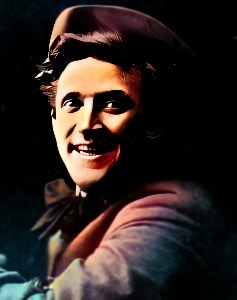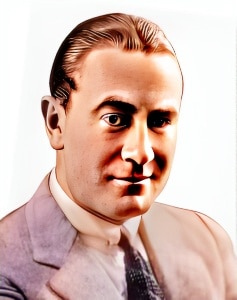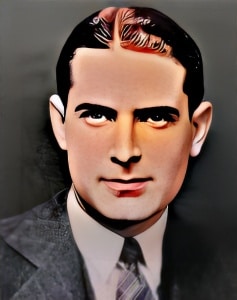 Darwin Karr (1876-1945) was an American actor known for his work in silent films during the early 20th century.
Darwin Karr (1876-1945) was an American actor known for his work in silent films during the early 20th century.
He made significant contributions to the burgeoning film industry, appearing in numerous movies and establishing himself as a recognizable figure in the world of entertainment.
Born on October 17, 1876, in Pittsburgh, Pennsylvania, Darwin Karr’s early life and education details are relatively scarce. He began his career in the entertainment industry during the silent film era, where he quickly gained recognition for his acting abilities and expressive performances.
Karr’s work in silent films coincided with the rapid growth and popularity of the cinema in the United States. He made his mark as a character actor, often portraying supporting roles in various film genres, including comedies and dramas. His ability to adapt to different roles and genres made him a valuable asset in the early days of Hollywood.
One of Darwin Karr’s early notable roles was in the 1914 silent film “Mabel at the Wheel,” directed by Mabel Normand and Mack Sennett. This film was a classic slapstick comedy, and Karr played a supporting role, contributing to the humor and charm of the movie. His collaboration with comedic legends like Normand and Sennett was a testament to his adaptability as an actor.
In 1915, Karr appeared in the silent short film “The Champion,” directed by Charles Chaplin. This marked his association with one of the most iconic figures in the history of cinema. In “The Champion,” Karr played a boxing opponent to Chaplin’s character. The film’s humor and physical comedy elements made it a classic in the silent film canon.
Karr’s work with Chaplin continued, and he appeared in several more films alongside the comedic genius. One of their notable collaborations was in “ The Immigrant” (1917), where Karr portrayed a fellow immigrant on the same journey as Chaplin’s character. The film blended humor with a poignant portrayal of the immigrant experience.
Darwin Karr’s career extended into the 1920s, a decade that saw significant changes in the film industry with the advent of sound. He successfully transitioned to sound films, displaying his adaptability as an actor. His ability to evolve with the changing technology and styles of filmmaking highlighted his versatility.
While Karr may not have achieved the level of recognition as some of his contemporaries, his enduring presence in classic comedies and films is a testament to his talent and contribution to early Hollywood. He played a vital role in the success of various films, often providing the humor and charm that enhanced the overall appeal of these productions.
As the film industry continued to evolve, Darwin Karr remained active as an actor, with roles in sound films. His extensive experience in silent cinema allowed him to adapt to the new medium and continue entertaining audiences with his performances.
Darwin Karr’s contributions to the world of cinema spanned several decades, from the silent era to the early years of sound cinema. His legacy as a character actor in both comedies and dramas remains an integral part of the history of film, testifying to the enduring power of storytelling and the ability of actors like Karr to leave a lasting impact.
Karr’s career in film was an embodiment of the transition and transformation of the film industry during its formative years. His work in silent and sound cinema reflects the ever-changing nature of the medium and the ability of talented actors to adapt and continue entertaining audiences.
Darwin Karr passed away on February 27, 1945, leaving behind a body of work that continues to be celebrated by film enthusiasts and comedy lovers. His contributions to the world of cinema, especially his collaborations with iconic figures like Charlie Chaplin, remain a significant part of the history of early Hollywood and the enduring power of film as an art form.

 Darwin Karr (1876-1945) was an American actor known for his work in silent films during the early 20th century.
Darwin Karr (1876-1945) was an American actor known for his work in silent films during the early 20th century.


